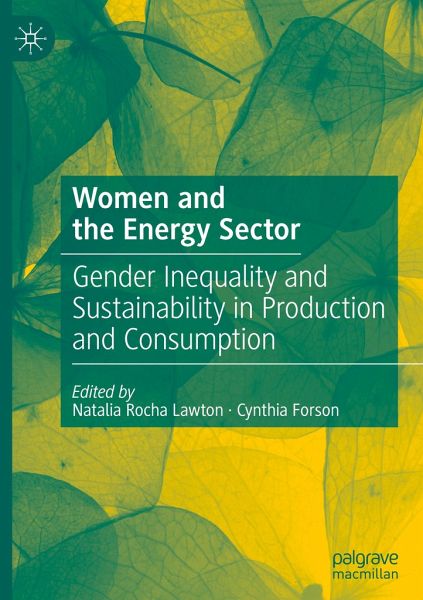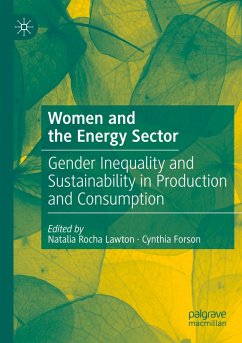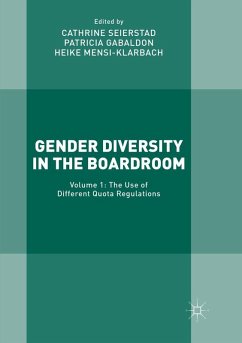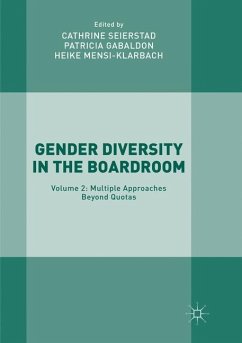
Women and the Energy Sector
Gender Inequality and Sustainability in Production and Consumption
Herausgegeben: Rocha Lawton, Natalia; Forson, Cynthia

PAYBACK Punkte
65 °P sammeln!
This book explores the relationship between gender inequality and the energy business, examining how gender relates to the process of producing energy, the management of energy companies, and the consumption of energy in the public and private sphere. Drawing on a wide range of examples, from Africa, South Asia, Latin America and Europe, it examines how clean energy targets can transform the experience of women in the workplace, creating new opportunities and challenges.This book knits together a variety of voices probing continuing and emerging gender inequality in energy, from a number of pe...
This book explores the relationship between gender inequality and the energy business, examining how gender relates to the process of producing energy, the management of energy companies, and the consumption of energy in the public and private sphere. Drawing on a wide range of examples, from Africa, South Asia, Latin America and Europe, it examines how clean energy targets can transform the experience of women in the workplace, creating new opportunities and challenges.
This book knits together a variety of voices probing continuing and emerging gender inequality in energy, from a number of perspectives, geography, energy dimensions, environment, socio-political and economic contexts. Its multidimensional approach provides a textured analysis of women's experiences in the energy landscape, and proffers solutions for addressing the universality, yet contextually disparate impacts, of patriarchy and its intersections with another strands of inequality. It will be of great interest to academics studying energy capitalism, energy production, consumption, public policy and gender studies, as well as those practitioners and policymakers in the energy industry and relating to gender and equality in the workplace.
This book knits together a variety of voices probing continuing and emerging gender inequality in energy, from a number of perspectives, geography, energy dimensions, environment, socio-political and economic contexts. Its multidimensional approach provides a textured analysis of women's experiences in the energy landscape, and proffers solutions for addressing the universality, yet contextually disparate impacts, of patriarchy and its intersections with another strands of inequality. It will be of great interest to academics studying energy capitalism, energy production, consumption, public policy and gender studies, as well as those practitioners and policymakers in the energy industry and relating to gender and equality in the workplace.














